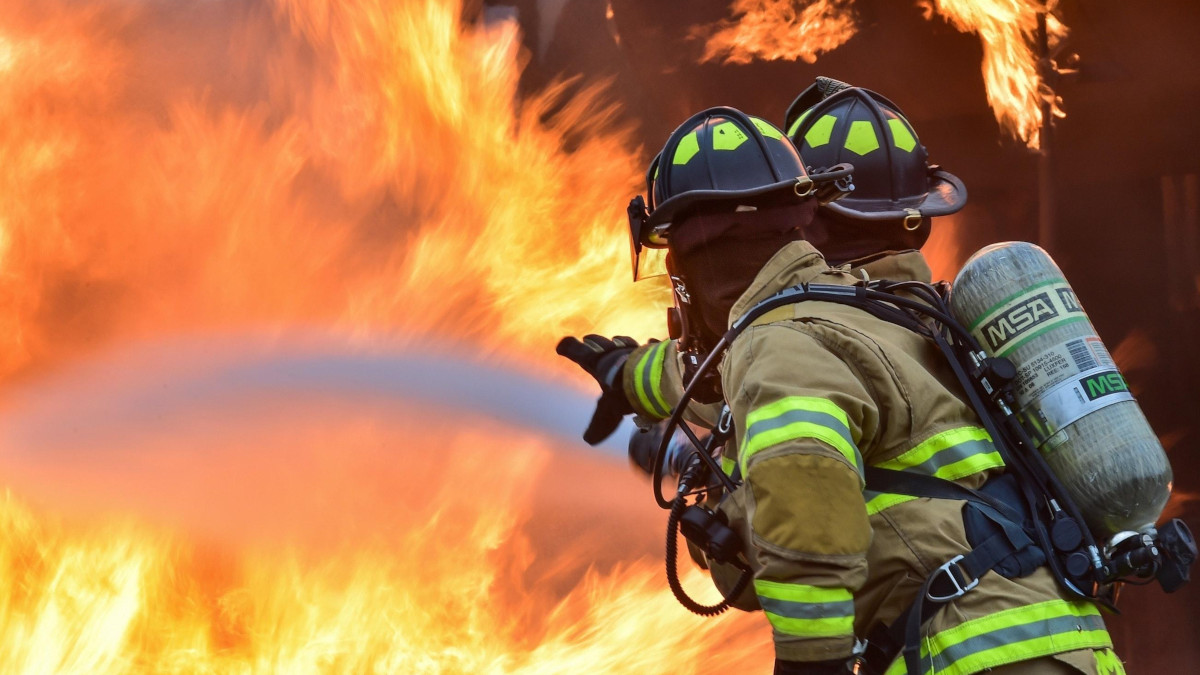(BIVN) – The University of Hawaiʻi at Hilo this past week issued an informational release on “Firefighter Syndrome”, as it looks to help address the long-term psychological and physical risks of the job.
From UH-Hilo:
Firefighters who battled the deadly Lāhainā wildfires on August 8 have earned immense gratitude for their efforts to fend off the historic inferno fed by hurricane force winds and large swaths of fire prone bone-dry brush.
Chris Frueh, a psychology professor at the University of Hawaii at Hilo provides insight into short- and long-term medical, psychological and social risks firefighters can sustain in their line of work. According to Frueh and researchers Isabella Zingray, a UH Hilo alumna and Gina Rudine, a graduate student in UH Hilo’s counseling psychology program, because firefighting involves regular exposure to chronic stress, lethal risks and potential for a wide range of injuries, including traumatic brain injuries and toxic exposures, the accumulation can lead to profound physiological changes.
“What we want to do is provide a framework for people who are midcareer to late career to retired to begin to understand their injuries and to begin to be able to understand how to take care of themselves and how to look for medical care that they may need,” said Frueh.
Frueh’s team found there is a profound lack of medical research into firefighters’ health. In 2021, they discovered firefighters are one of the least understood highly-at-risk populations after citing an index search of medical journal research articles found only 499 about firefighters published compared to 15,299 for veterans.
“It’s a 30 to 1 ratio, veterans to firefighters, which is startling. It means we know almost nothing about the types of injuries and health problems that firefighters develop over the course of a career,” Frueh explained.
The researchers have devised a framework to address what they call “Firefighter Syndrome” in an effort to take a whole systems approach for first-responders. The newly-released framework has been adapted from Frueh’s work with military special operators after extensive research and field work in the approach called Operator Syndrome. His team hopes their groundwork will impact firefighters in Hawaiʻi and around the globe.
Related UH News story: UH Hilo researchers conduct historical study of suicide in Army, December 13, 2019
Frueh’s team also developed a questionnaire for firefighters to self-report and evaluate each of the elements they could be experiencing. The public-domain assessment measure is open for use to clinicians and medical researchers or directly by firefighters to help educate and guide them back to safety.
Firefighter Syndrome
This framework includes the following characteristics:
• Traumatic brain injury (TBI) and toxic exposures
• Hormonal dysfunction
• Sleep disturbance
• Obstructive sleep apnea/Central sleep apnea disturbances
• Chronic pain, orthopedic problems, headaches
• Substance use
• Post traumatic stress disorder (PTSD)
• Depression
• Anger
• Worry, restlessness, stress reactivity, panic attacks
• Marital and family dysfunction
• Problems with sexual health and intimacy
• Being “on guard” and hypervigilant
• Memory, concentration, cognitive impairments
• Perceptual system impairments
• Disrupted hydration and nutrition
• Home-to-work transition difficulties
• Existential concerns“An individual firefighter can look through it and see ‘Oh, my goodness, I check these boxes.’ It can help educate them as to what some of the domains or concerns are. Where they are on some of t hese issues,ʻ” said Frueh. “It can also be used as a way to educate spouses or family members – and, importantly, to review with their healthcare providers.”
Researchers also formulated suggestions for firefighters to use when seeking support and health care. Topics covered included suicide risk assessment, peer support, how to find and vet a primary care provider, and how to observe and evaluate lifestyle.


by Big Island Video News7:42 am
on at
STORY SUMMARY
HILO, Hawaiʻi - A psychology professor at the University of Hawaii at Hilo studies the psychological and physical risks of being a firefighter.